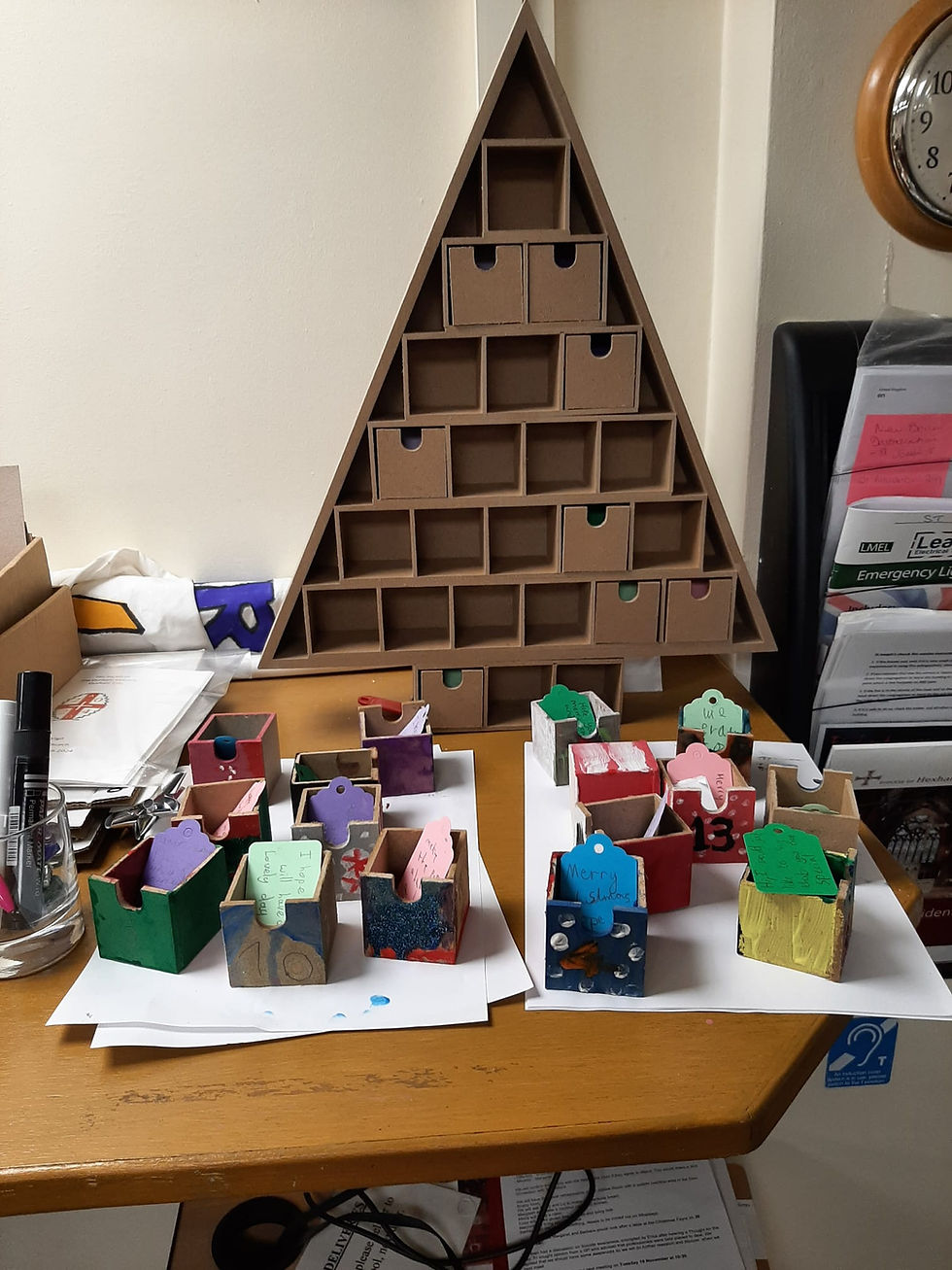Formation of the Heart
- Durham Martyrs Parish

- Jun 19, 2020
- 3 min read
Formation of the Heart

The word heart is used here in its full biblical meaning of that place where body, soul, and spirit come together as one. In our modern background, heart has become a soft word. It might refer to just feelings or the seat of the sentimental life. We think of the heart as the warm place where our emotions are located, in contrast to the cool intellect, where our thoughts find their home. But the word heart in Jewish-Christian tradition refers to the source of all physical, emotional, intellectual, volitional and moral energies. It is the seat of the will; it makes plans and comes to good decisions. Thus, the heart is the central unifying organ of our personal life. Our heart determines our personality, and the place where God dwells, but also the place to which the Evil One directs fierce attacks, causing us to doubt, fear, despair, resent, overconsume, and so on. Thus, to live the spiritual life and to let God’s presence fill us takes constant prayer, and to move from our illusions and isolation back to that place in the heart where God continues to form us in the likeness of Christ takes time and attention.
I like the following story of the sculptor, which expresses in a simple but powerful way the importance of ongoing spiritual formation:
A little boy was watching a sculptor at work. For weeks this sculptor kept chipping away at a big block of marble. After a few weeks he had created a beautiful marble lion. The little boy was amazed and said:
“Mister, how did you know there was a lion in the rock?”
Long before he forms the marble, the sculptor must know the lion. The sculptor must know the lion “by heart” to see him in the rock. The secret of the sculpture is that what he knows by heart he can recognise in the marble. A sculptor who knows an angel by heart will see an angel in the marble; when the sculptor knows God by heart, he will see God in the marble. The sculptor certainly has to know the trade, because without skills and techniques the marble will not reveal the knowledge of the heart. But skills and techniques won’t suffice unless the heart is formed by the right knowledge. The great question for the sculptor is,
What do you know by heart?
The story of the boy and the sculptor helps us to see spiritual formation as formation of the heart. What is the value of well trained and well-informed Christians and spiritual leaders when their hearts remain ignorant? What is the value of great theological erudition or great pastoral adeptness or intense but fleeting mystical experience or social activism when there is not a well-formed heart to guide well-formed life?
Whether the knowledge of the mind leads to God or to despair depends on the heart. When the word of God remains a subject of analysis and discussion and does not descend into the heart, it can easily become an instrument of destruction instead of a guide to love. When our heart knows only evil or selfish thoughts it will evoke evil and selfishness, but when our heart ifs formed by the living world of God in Christ it will discern the face of God in all it sees.
Theophan the Recluse wrote:
When remembrance of God lives in the heart and there maintains the fear of Him, then all goes well: but when this remembrance grows weak or is kept only in the head, then all goes astray.
When only our mind “sees” and our heart remains blind, we remain spiritually ignorant. Therefore, spiritual formation calls for the ongoing discipline of descending from the mind into the heart so real knowledge and wisdom can be found.
‘Following the Movements of the Spirit’
HENRI J. M. NOUWEN
With MICHAEL J. CHRISTENSEN and REBECCA J. LAIRD




Comments